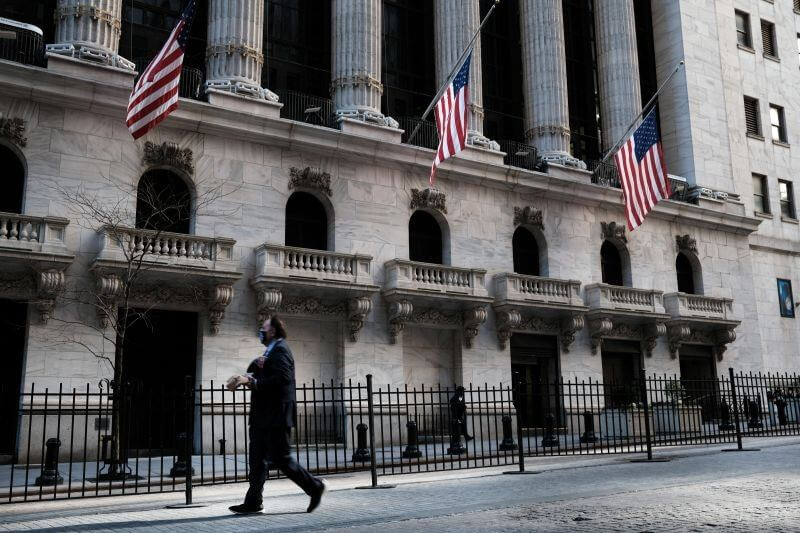
Bad Day for Wall Street Stocks as US Treasury Yields Jump
Wall Street stocks tumbled, with tech shares hit especially hard, as raising bond yields in the US and elsewhere exacerbated worries about inflation and a potential sudden shift in central bank policies.
All three major US indices fell sharply, but the tech-dominated Nasdaq was by far the weakest, sinking 3.5 percent.
In Europe, early gains faded with London, Paris and Frankfurt all ending the day lower.
US stocks were under pressure the entire session as investors monitored the 10-year Treasury, which has been rising sharply in recent days and got as high as 1.61 percent.
Investors fear a spike in inflation will prompt the Federal Reserve to shift away from easy-money policies and quickly raise interest rates — despite central bank assurances to the contrary.
Analysts point to a potential overheating of the US economy in the second half of 2021 with coronavirus vaccinations allowing greater economic activity and a massive new government aid package expected soon.
Fed officials have said repeatedly that inflation is under control and they do not anticipate shifting course.
At a congressional hearing earlier this week, US Fed Chair Jerome Powell said that rising prices are “a different thing from persistent high inflation, which we do not expect and if we do get, then we have the tools to deal with it”.
Oanda analyst Craig Erlam said Powell’s soothing tones — along with some positive news on the pandemic front — helped boost stocks late on Wednesday, “but already we’re seeing that fade” as yields on bonds continue to rise.
“Despite Powell’s assurances, investors are growing increasingly convinced that higher inflation will prompt central banks to tighten sooner,” he added.
Yields also rose for government bonds in other markets, including France and Germany.
“Yields are rising across the board, a sign of confidence in the global economy to recover powerfully in the post-pandemic world,” Erlam said.
“But it’s also a massive headache for central banks keen to remain extremely accommodative in the early stages of the recovery,” he added.
Market analyst David Madden at CMC Markets UK noted that the European Central Bank’s chief economist recently said policymakers are prepared to buy bonds flexibly in order to prevent governments cutting spending due to higher borrowing costs.
“The problem the ECB has is that the bond market doesn’t appear to be listening,” said Madden.

